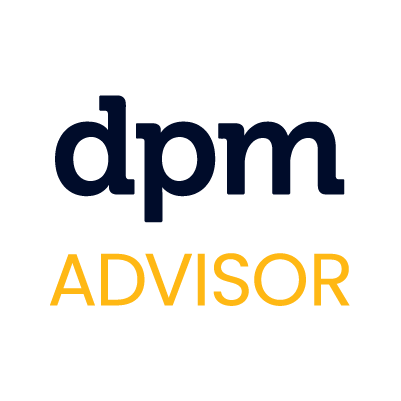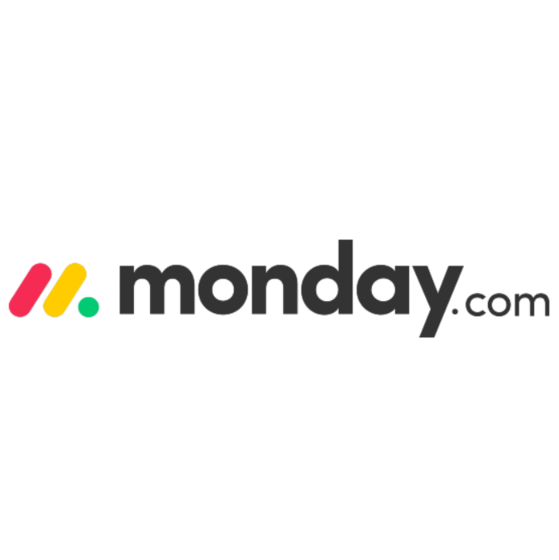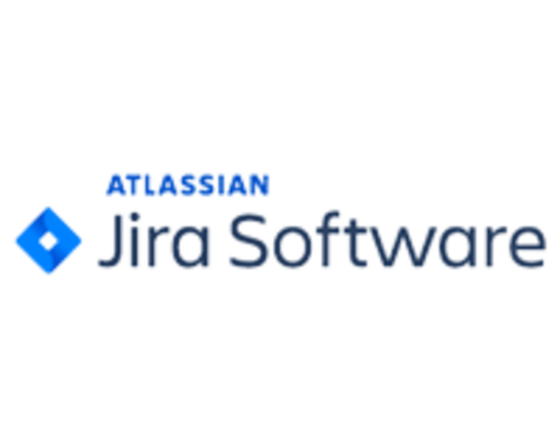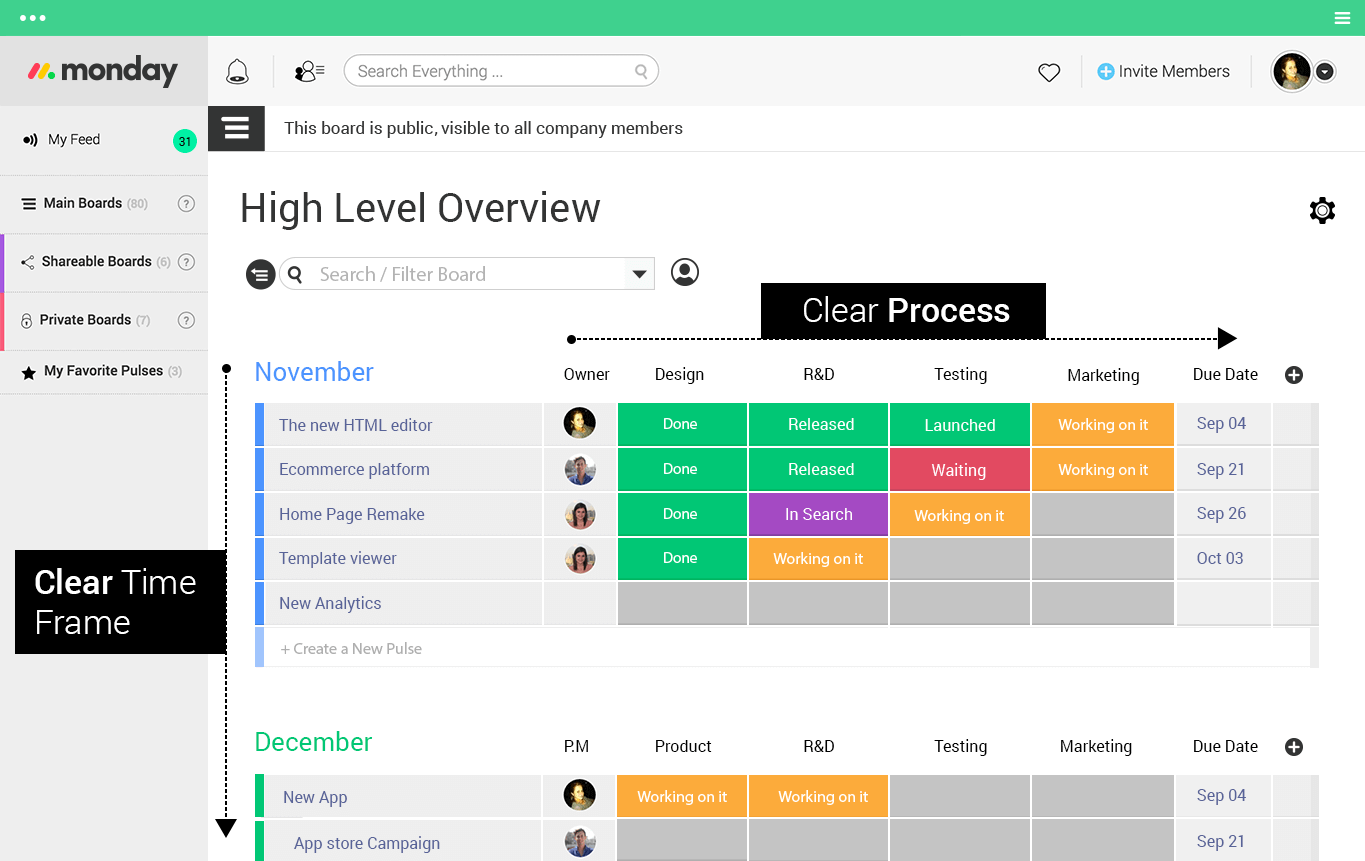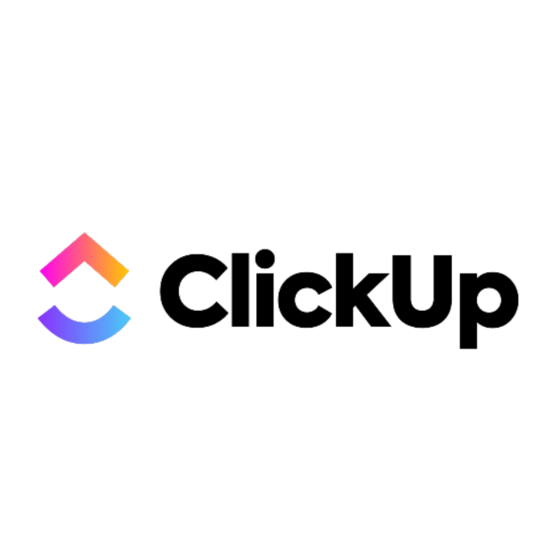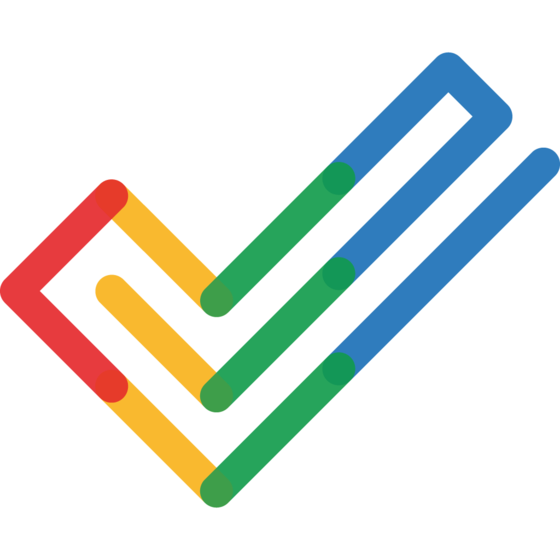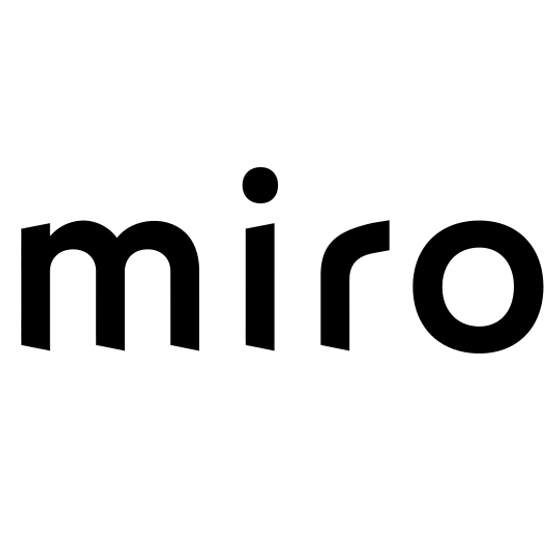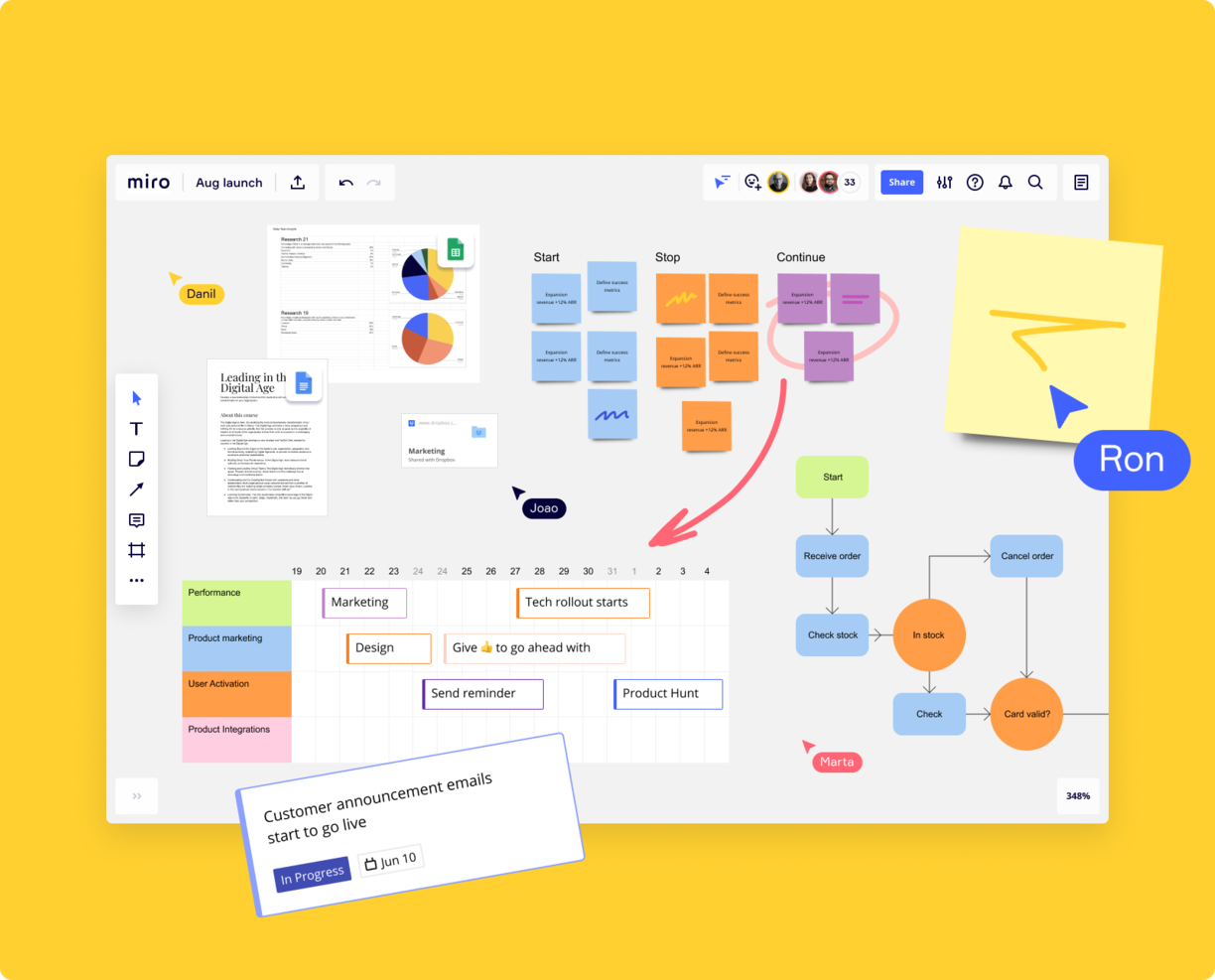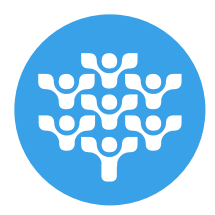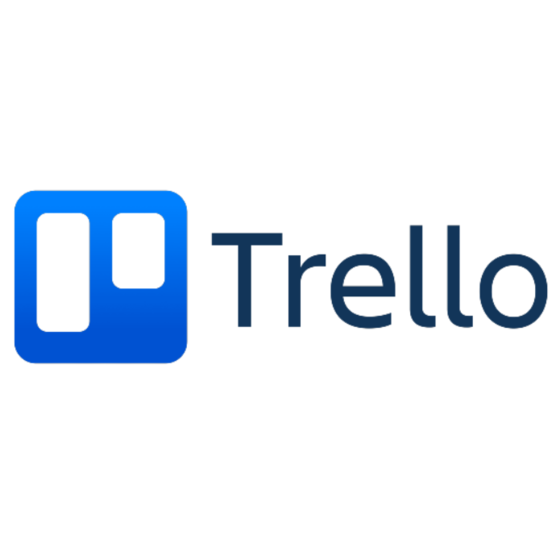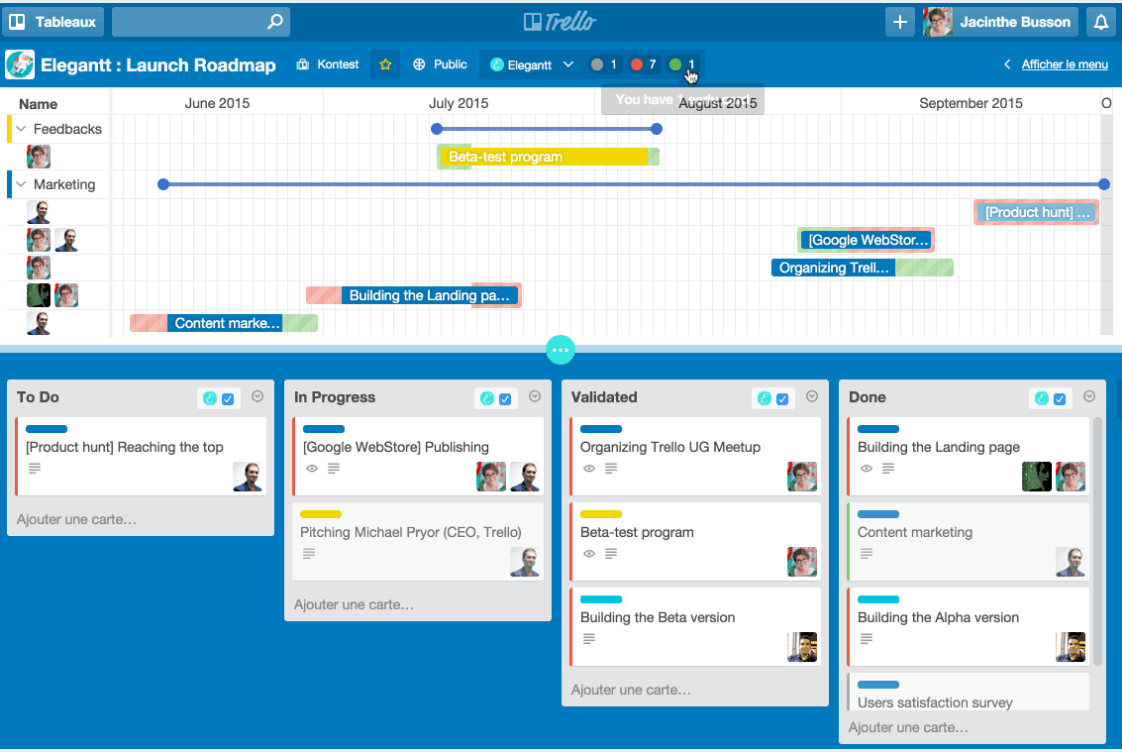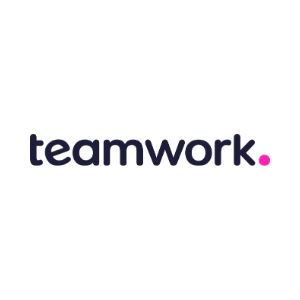10 Best Project Management Software For Startups Shortlist
Here's my pick of the 10 best software from the 20 tools reviewed.
Get free help from our project management software advisors to find your match.
There are so many different project management tools that making a shortlist of the ones that are best for startups can be tricky. You want to create and manage project plans and collaborate with your team - and need the right tool that can scale with you as you grow. I've got you covered! In this post, I use my personal experience working on hundreds of projects for early-stage companies, using many different platforms, and handling complex projects to share my picks of the best project management software for startups.
What is project management software for startups?
Project management software for startups is a tailored solution that helps efficiently organize tasks, timelines, and resources for startup projects, ensuring streamlined workflows, timely delivery, and effective collaboration. This ensures everyone is on the same page and aware of project progress. Features often include task and milestone tracking, collaboration tools, document sharing, and resource management.
The primary purpose of this software is to help organize projects to enhance productivity and allow your company to scale as the complexity of projects and the number of team members involved increase.
Overviews Of The Best Project Management Software For Startups
Here’s a brief description of each of the best project management tools for startup companies.
monday.com may seem like the most popular project management software that players in the big leagues use today. Though that is mostly true, monday.com is also one of the most helpful tools startup teams should consider implementing early on so that they can eventually join the bigger players. As a bonus, monday.com is easy to set up and we know how important it is to stay on track on all of your projects as you grow.
monday.com knows how important collaboration is for creative teams so it lets you connect in a variety of different ways without ever leaving the platform: commenting, file attachment, @-tagging, “liking” posts, and assigning tasks with point-and-click ease. You can also build team-specific dashboards and project boards so that everyone can easily see what is being worked on.
monday.com integrates with the tools you already know and love, making the transition for your startup team hassle free. Integrations include project management apps like Slack, Google Drive, Gmail, Google Calendar, Jira, GitHub, Trello, Dropbox, Typeform and many more, accessible through a paid plan with Zapier.
monday.com costs from $6/user/month and comes with a free 14-day trial. They offer a free plan for up to 2 users.
ClickUp is a project management software that sits at the top of many lists. Full of features and with an incredible free version, this tool has what all startups need: great functionality at a low or non-existent price
Collaborative docs will help you create your one pager, investor documents, and partner agreements. Whiteboards can help you brainstorm ideas on a new product. Their in-app chat will keep your comms fresh and without needing to buy another software or relying on instant messaging platforms.
Bonus: If you need more than the 100MB storage limit on the free version, you can get the small team plan and even negotiate the price by letting them know how much you are willing to pay per user.
ClickUp offers native integrations with Slack, G Suite, Dropbox, and many more tools, as well as over 1,000+ integrations through Zapier.
ClickUp is free with limited storage for an unlimited number of users. Paid plans start at $5/user/month and offer a free-trial.
Plaky is a project management software that offers versatile workflow templates and planning features for a wide range of business functions for startups.
Whether you need a unified marketing project board, a place to plan sales initiatives or an intuitive way to track bugs for software development, Plaky offers a suite of ready-made templates that you can customize to meet the needs of your business. You can also build project management boards from scratch for more tailored workflows.
Users can plan tasks, create custom fields, set due dates, and assign team members all within one space. This centralized approach ensures complete project visibility. Team members can also collaborate through commenting features and file sharing, ensuring that all communication is easily accessible. You can also view live activity logs to note any changes made to any projects or processes.
Plaky integrates with Clockify for time tracking and Pumble for real-time communication.
The platform offers a free plan with unlimited users and projects. Paid plans start from $3.99/user/month (billed annually).
Zoho Projects is an online project management tool that lets teams plan, track, and collaborate on project work. The tool is scalable for startups and small businesses.
Zoho Projects allows users to set up project plans, as well as create and assign ad-hoc tasks across the team. The tool also includes features like flexible work hours, baselines, and critical paths in Gantt charts, team based work allocation, and task reminders. Time tracking and resource utilization features help managers ensure that employees are not over or under worked.
Users can automate task transitions and workflows, track activities and progress by using the advanced reports, and manage budgets with expense management features. Collaboration features include team-wide and individual discussion management, a meeting tab to facilitate virtual meetings, a social feed to interact with and keep track of all your project activities, a forum to discuss ideas and solutions, and a central document management module to manage all information. Mobile applications are also available.
Zoho Projects has several integrations with Zoho apps like Zoho CRM, Zoho Cliq, Zoho Meeting, as well as with other third party apps like Microsoft Office 365, Microsoft Teams, Google Drive, Zapier, Zendesk, and ServiceNow.
Zoho Projects offers a free plan as well as a 10-day free trial for paid editions, which start at $4 per user per month.
Miro is a collaborative online whiteboard platform widely used by startups for project management. It provides a range of templates like mind maps and Kanban boards and allows the import and further development of existing charts from tools like Visio.
Teams can express ideas using various formats, including numerical data, images, and videos. Miro's integration with project management tools such as Jira and Asana enables a visual complement to task tracking. By embedding Miro boards within tasks, team members can view project progress and dependencies visually, supporting a clearer understanding of project dynamics. This functionality makes Miro a practical choice for startups seeking a visual and interactive project management solution.
Other notable features include built-in video conferencing, Agile workflows, brainstorming templates, and wireframing tools.
Miro has integrations with a whole suite of tools, including Confluence, monday.com, Zoom, Figma, Asana, Microsoft Teams, Jira, Slack, Google Drive, Box, Airtable, Notion, Azure, and Webex. Some integrations are limited to paid plans only.
Pros and cons
Pros:
- Free forever plan available
- Intuitive and easy setup
- Built-in communication features for streamlined collaboration
Cons:
- Visitor/guest accounts locked to paid plans only
- Zooming can be jumpy on larger projects
- Free version does not allow high-quality export to pdf
FigJam is a collaborative whiteboard that has project management features built in. It can be used for a number of things, like virtual brainstorming, workflow design, strategy and planning, and team collaboration. Unlike a more traditional project management tools, this software offers a flexible visual platform that you can customize to meet your needs.
The software's whiteboards are infinite, meaning you can zoom in or out as far as you need. This is helpful for crafting complete product roadmaps and breaking things down into higher- and lower-level views. You can use audio and live chat, stamp and emoji reacts, and even bitmoji avatars to collaborate virtually with your team members. You can also invite external collaborators to work on your boards.
When it comes to project management, the platform's pre-built templates are really helpful. Whiteboard layouts for project kickoff brainstorms, roadmaps, timelines, flowcharts, and workflows are all available. Templates for other things like weekly and daily status meetings are included, too. The software also has calendar and timeline widgets to support your project planning and execution.
Integrations include Figma, Microsoft Teams, Asana, Jira, Mixpanel, and Github. Paid plans start from $3 per user per month, but a freemium plan is also available with unlimited users and up to 3 FigJam files.
Forecast
Best for managing your projects, resources, and finances in one
Forecast is a project management software for startups that unites your projects, resources, and financials in one AI-powered platform. Project managers can leverage Forecast’s workflow automation capabilities to create smart schedules, estimate timeframes and budgets, and populate timesheets instantly. Forecast is currently used in over 40 countries by an assortment of agencies, consulting companies, SMBs, and enterprises.
PMs can control the workflow by building out detailed task lists and flagging clear priorities. Task cards allow every team member to easily comment, share files, and register time spent. Everything related to the specific task appears in one place, including dependencies and subtasks. You can put together projects for any type of work: fixed price, time and material, or retainer.
Forecast’s AI learns from previous work and suggests the number of hours you normally register on similar tasks to help you log time faster. You can monitor time registrations from a team perspective and notify each member if they forget to enter something in. Time tracking utilization on a company-wide level is calculated for you for easy alerts, estimates, and reporting.
Forecast integrates with Slack, Microsoft Teams, iCloud Calendar, Google Drive, Google Calendar, Outlook, Harvest, Trello, Asana, GitLab, Github, and dozens more using a paid plan through Zapier. Higher-tier subscriptions include native integrations with Timelog, Xero, QuickBooks Online, JIRA, Azure DevOps, Salesforce, Okta, OneLogin, and Azure Active Directory.
Forecast cost from $29/user/month with a minimum of 10 users and offers a 14-day free trial.
Freedcamp is a project management software that comes with something that most startups today consider as the industry standard: a robust mobile app that’s available on iOS and Android. This means that startups without an office or with limited available computers can access project management data on their personal smartphone device or tablet.
Freedcamp lets users save passwords, create invoices, back up and edit files—all this on top of the project templates, CRM features, and white labeling capabilities you would expect from a solid project management tool. Freedcamp also has calendars, discussion boards, milestones, a team/process wiki builder, issue tracking, and a time tracker too.
Freedcamp integrates with thousands of solutions through Zapier (which requires a separate paid plan of its own).
Freedcamp is free to use with some feature limitations. Their paid plans cost from $1.49/user/month, which you can try through their 14-day free trial.
Trello is a project management solution that is most known for its Kanban boards. It offers startup teams a comprehensive tool that can be quickly set up and understood with its intuitive drag-and-drop interface for customizing boards and a no-code workflow automation builder. Their free plan lets you run 250 automated command runs per month, which is noteworthy because many PM tools limit automations to paid subscription plans. Startups take note!
Trello is great for startup teams thanks to a feature-packed free plan that Kanban board cheerleaders in particular will appreciate. You get unlimited cards, unlimited members, up to 10 boards per workspace, a list of free integrations with other PM tools (Google Drive, Slack, etc.), unlimited activity logs, mobile app access, and 2-factor authentication for log-ins.
Trello integrates with Confluence, Slack, Dropbox, Google Drive, Evernote, and other third-party apps you typically find in a modern tech stack.
Trello is free to use. Paid plans cost from $5/user/month and come with a 14-day free trial.
Teamwork is a project management software that lets users manage multiple products across their lifecycle without it being complicated to use. But that doesn’t mean it’s a simple tool. It comes with advanced features built to scale with your organization as you grow.
Teamwork offers a variety of ways for users to view their data, collaborate on it, and iterate. Take advantage of project and task management features like templates, time tracking & invoicing, custom fields, custom workflows, workload resource management, as well as utilization reports.
Teamwork integrates with Slack, Xero, Hubspot, Google Drive, Dropbox, QuickBooks, and Zapier.
Teamwork costs from $10/user/month which you can try free for 30 days. Teamwork offers a free forever plan for individuals and small teams with access to limited features.
Get the PM Software Buyer's Guide
The Best Project Management Software For Startups Comparison Chart
Here is a table where you can compare all the tools we just covered in the overviews.
| Tools | Price | |
|---|---|---|
| monday.com | From $8/user/month (billed annually, min 3 seats) | Website |
| ClickUp | From $7/user/month | Website |
| Plaky | From $3.99/user/month (billed annually) | Website |
| Zoho Projects | From $5/user/month (billed annually). | Website |
| Miro | From $10/user/month | Website |
| FigJam by Figma | From $3/user/month | Website |
| Forecast | From $29/user/month (min 10 seats, billed annually) | Website |
| Freedcamp | From $1.49/user/month (billed annually) | Website |
| Trello | From $6/user/month | Website |
| Teamwork.com | From $10/user/month (billed annually) | Website |
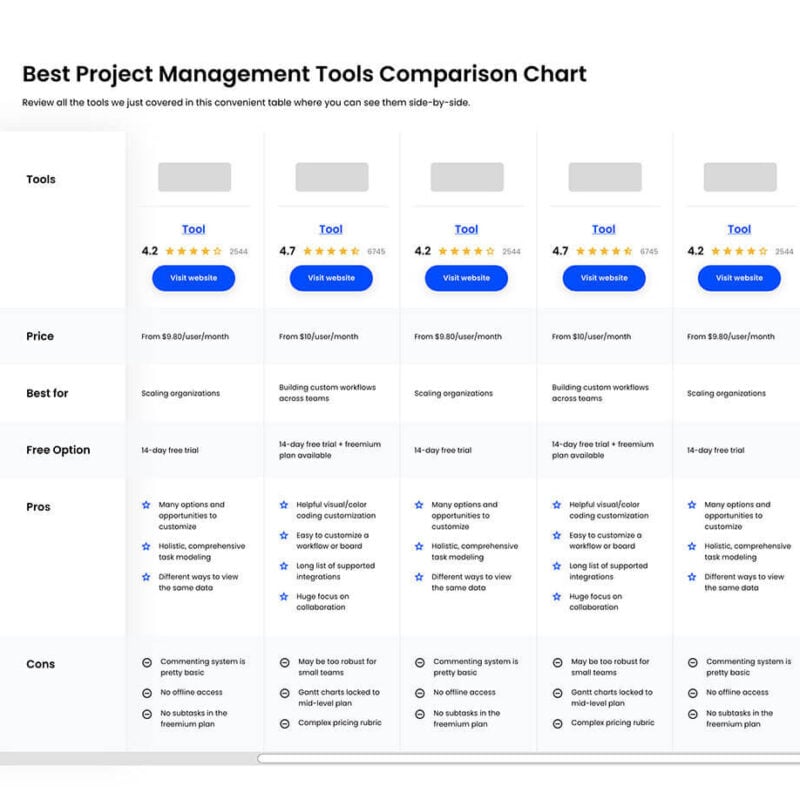
Compare Software Specs Side by Side
Use our comparison chart to review and evaluate software specs side-by-side.
Compare SoftwareOther Options
Here are a few more that didn’t make the top list but are worth your consideration.
- Asana
Best for easy user adoption
- Hubstaff
Best free project management for startups
- Basecamp
Best for project stand-ups
- Office Timeline
Best for PowerPoint timeline creation
- Height
Best for its free plan with unlimited members, guests, and tasks
- TeamGantt
Best for Gantt charts
- MeisterTask
Best for brainstorming, ideation, and task management in one
- Wrike
Best for external collaborators
- Celoxis
Best for managing a project portfolio
- ESPMI
Best project management software for startups that belong to a portfolio
How I Picked The Best Startup Project Management Software
What are we looking for when we select project management software for startups for review? Here’s a summary of my evaluation criteria:
User Interface (UI)
Is the interface modern, simple, and easy to understand and navigate?
Usability
Is it easy to learn and master? Does the company offer good tech support, user support, tutorials, and training to reduce the learning curve?
Integrations
Does it connect with software you most likely already use, like Slack, G Suite, Google Drive, Google Calendar, Dropbox, JIRA, Evernote, Excel, Salesforce, Proofhub, and so on? If it doesn’t have file sharing built-in, you’ll definitely want to make sure it integrates with a file management tool to keep all of your file versions for different projects in a central location. Software development teams will probably want a pre-built integration with Jira.
Pricing
Is the price accessible for small teams and startups? Does it offer a free plan to start, or any free trials or freemium subscriptions?
How do you implement project management in a startup?
You'll quickly realize the need for a project manager within your roster. However, you will also realize that there might not be a budget for it. Then, your first task is to select which is the best position within your current team to handle these responsibilities.
After you've chosen a person, you need to look for free tools that you can test with. After you test, you'll have to select the best tool for your situation and then the fun starts.
Tool adoption takes time, but you'll have to invest in one-on-one meetings to explain to different people how to use the tool for their role within the projects. This will be time-consuming but also the best path to guarantee a smoother transition from your current system to this tool.
Finally, repetition will be your best ally. Repeat, repeat, repeat. Iterate on your process and provide feedback to the team on their use of the tool so they keep moving in the direction you want them to.
What are the key features in project management software for startups?
Here are some of the features I look for when evaluating a project management system for startups and small businesses.
- Streamlined work management features: Most startups don’t have a lot of resources to dedicate to training and onboarding, so the tool must offer simplified “get-up-and-go” project planning with a manageable learning curve.
- Team collaboration software and file-sharing: Communication and distribution of limited (but expanding) assets are critical to getting any startup off its feet.
- Real-time updates between team members: Things are moving fast and changing often so it’s imperative that different team members are getting the most current information as soon as possible.
- Roadmap with automated follow-ups: Not only will your startup squad need a crystal clear roadmap for where they are going but you will want some way to ping team leaders if a project or task requires follow up or course correction.
- Collaboration tool that can span different projects: Startups are juggling many projects at once, from social media upkeep to product development to hiring; you’ll need an app that unifies collaboration for all branches in a central location.
- Scrum boards for backlog visibility: This helps busy teams visualize what needs to be done for each sprint and put a pin in items that are lower priorities. It also helps startup PMs keep track of great ideas for their product roadmap and future vision.
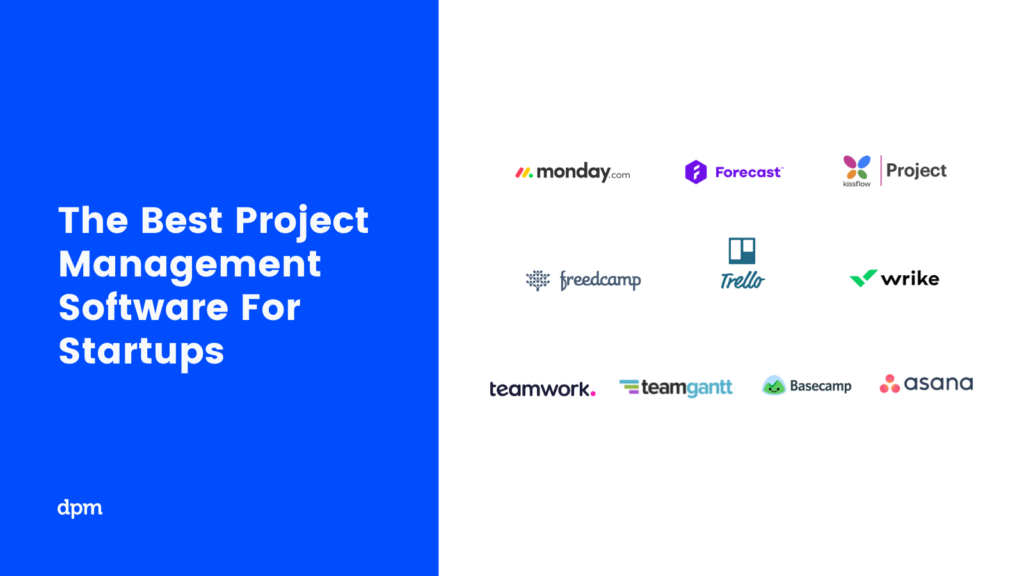
What's Next?
Have you tried out any of the above tools for startup companies? What do you think are the best project management tools for startups and small businesses? Is there any project management software for entrepreneurs that you would recommend be added to this list? Let us know your thoughts in the comment section.
Related tool lists:
Looking for another type of project management tool? Start with this list of tools.

